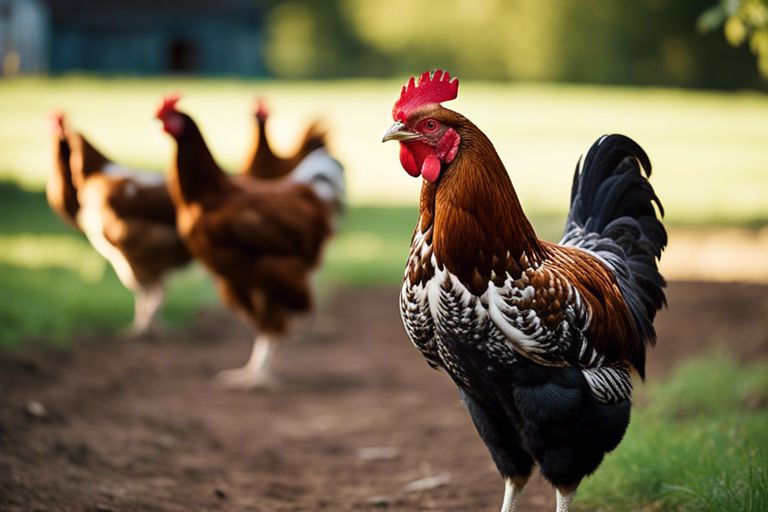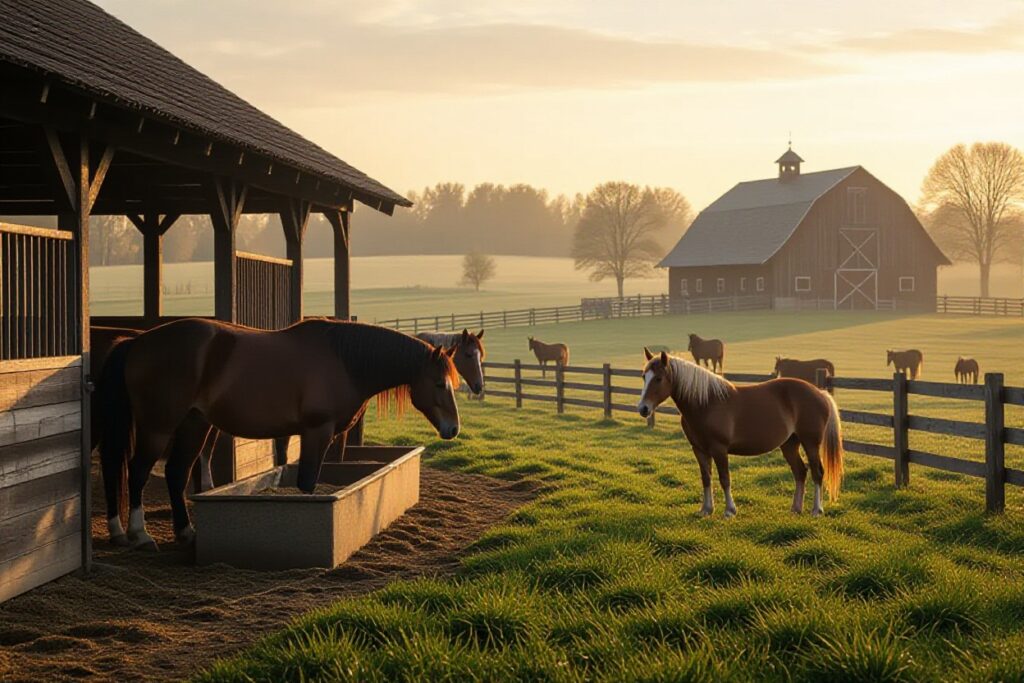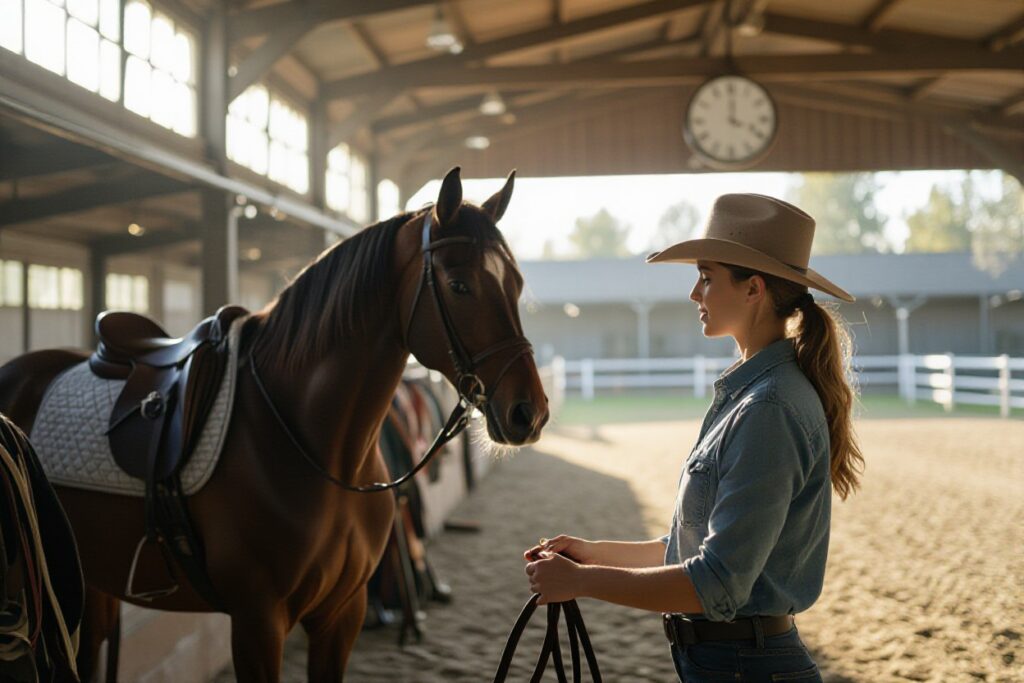It is fascinating to explore into the rich history and heritage of heritage chicken breeds. These traditional breeds, such as the Plymouth Rock, Rhode Island Red, and Orpington, played a vital role in agricultural practices and food production for centuries. Their genetic diversity and unique characteristics are a testament to our agricultural past and the importance of preserving these breeds for future generations. Understanding the origins and characteristics of heritage chicken breeds provides us with valuable insights into our agricultural heritage and the significance of sustainable farming practices. Join us as we explore the fascinating world of these iconic chicken breeds and their enduring legacy in today’s poultry industry.
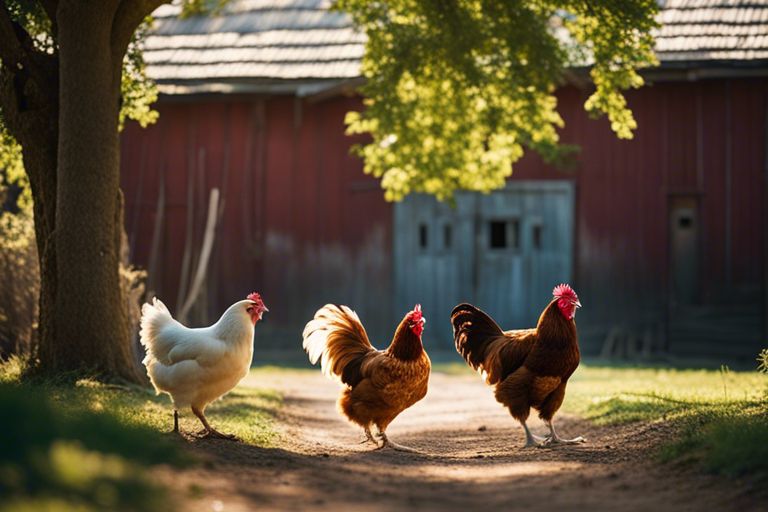
Origins and Evolution of Chicken Domestication
Early Domestication and Selective Breeding
An integral part of human history, chickens were domesticated from wild jungle fowl in Southeast Asia thousands of years ago. Early domestication involved keeping chickens for their meat and eggs, leading to the development of different breeds through selective breeding. This process laid the foundation for the diverse range of chicken breeds we see today.
Historical Significance of Heritage Breeds
Early heritage chicken breeds played a crucial role in providing food, feathers, and even religious significance in different cultures. These breeds were carefully selected and bred over generations to possess specific qualities such as disease resistance, egg production, or meat quality. Their historical significance is deeply rooted in the traditions and agricultural practices of ancient civilizations.
The preservation of heritage chicken breeds is imperative to maintaining genetic diversity and cultural heritage in the poultry industry. These breeds reflect the resilience and adaptability of chickens in various environments over centuries, making them valuable assets for sustainable agriculture and genetic conservation efforts.
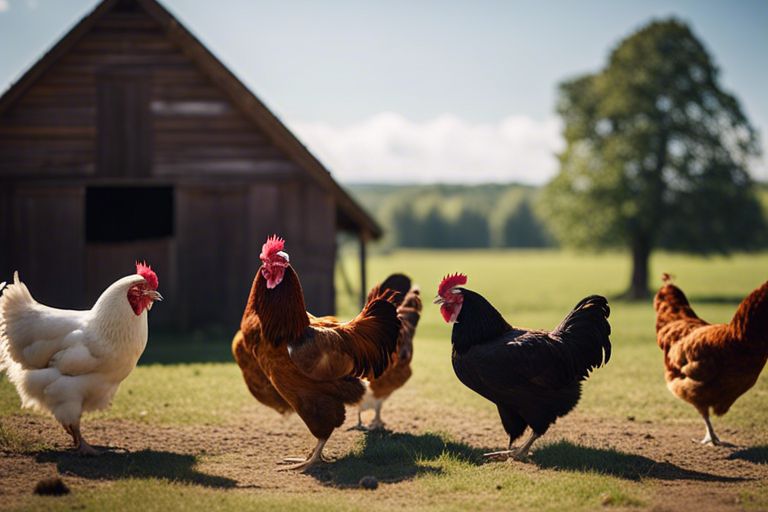
Characteristics of Heritage Chicken Breeds
Physical and Behavioral Traits
Little is known about the physical and behavioral traits of heritage chicken breeds that have been preserved over generations. These breeds often exhibit unique characteristics such as colorful plumage, strong foraging instincts, and broodiness.
Genetic Diversity and Adaptability
Heritage chicken breeds are admired for their genetic diversity and adaptability to various environments. Breeds like the Rhode Island Red and Plymouth Rock have been able to thrive in different climatic conditions and resist common poultry diseases.
For instance, the Buckeye chicken breed is known for its ability to withstand cold temperatures, making it a popular choice for backyard chicken keepers in northern regions. The genetic diversity of heritage chicken breeds ensures a stronger gene pool, reducing the risk of inbreeding and maintaining the overall health and vitality of the breed.
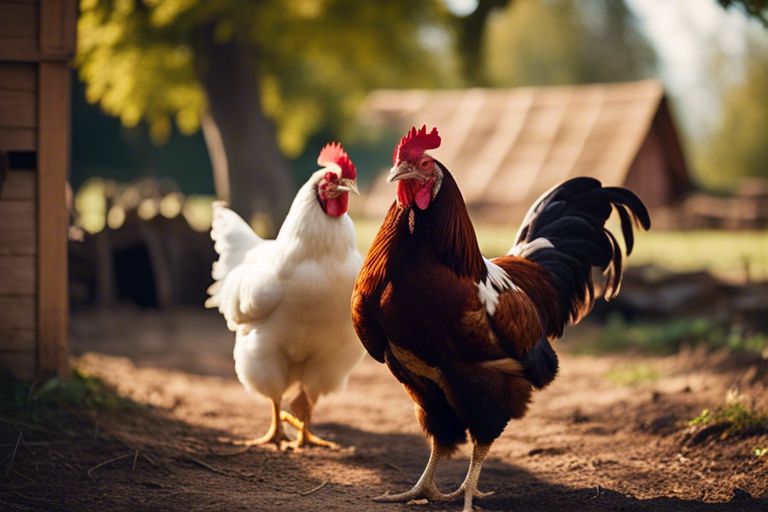
Preservation and Revival Efforts
Challenges Facing Heritage Breeds
On the path to preserving heritage chicken breeds, there are various challenges that breeders and conservationists face. These challenges include maintaining genetic diversity, raising awareness about the importance of heritage breeds, and ensuring sustainable breeding practices. Additionally, competition from commercial breeds and the loss of traditional farming practices also pose significant threats to the survival of heritage breeds.
Organizations and Movements Supporting Conservation
The conservation and revival of heritage chicken breeds have garnered the support of various organizations and movements dedicated to preserving agricultural heritage. These groups work towards creating networks of breeders, promoting education on the value of heritage breeds, and advocating for policies that protect and support conservation efforts. Their collective efforts play a crucial role in safeguarding these breeds for future generations.
For instance, organizations like The Livestock Conservancy in the United States and the Rare Breeds Survival Trust in the United Kingdom play a pivotal role in raising awareness about heritage breeds, providing technical support to breeders, and facilitating breeding programs to conserve rare chicken varieties. By working collaboratively with farmers, breeders, and policymakers, these organizations contribute significantly to the preservation and revival of heritage chicken breeds.
Impact on Modern Agriculture and Society
Contributions to Sustainable Farming Practices
Many heritage chicken breeds have played a crucial role in promoting sustainable farming practices. Ancestors of these breeds were known for their ability to forage and thrive in diverse environments, requiring less human intervention for survival. This characteristic has made them popular among farmers who value self-sufficiency and minimal environmental impact.
Cultural and Culinary Importance
With the resurgence of interest in traditional foodways and culinary diversity, heritage chicken breeds have found a special place in the hearts of chefs and food enthusiasts. These chickens are prized for their superior flavor, texture, and nutritional value compared to commercially raised birds. In addition to their culinary appeal, these breeds often hold cultural significance, representing a connection to our agricultural heritage.
Culinary traditions around the world have long celebrated the unique qualities of heritage chicken breeds, incorporating them into traditional dishes and culinary practices. Their rich flavors and textures add depth to recipes, creating a truly memorable dining experience for those who appreciate the heritage and story behind their food.
Conclusion
As a reminder, heritage chicken breeds play a vital role in our agricultural history and genetic diversity. These breeds have been carefully preserved by dedicated breeders and organizations to ensure their survival for future generations. By understanding and appreciating the history and heritage of these chicken breeds, we can continue to support their conservation efforts and promote sustainable agriculture practices. It is important to recognize the significance of these breeds in maintaining a healthy ecosystem and preserving our cultural heritage.
FAQ
Q: What are heritage chicken breeds?
A: Heritage chicken breeds are traditional breeds of chickens that have been raised for many generations. They are known for their ability to thrive in outdoor environments and their superior flavor and texture compared to modern breeds.
Q: Why are heritage chicken breeds important?
A: Heritage chicken breeds are important because they help preserve genetic diversity in poultry, which is crucial for the future of agriculture. They also play a role in sustainable farming practices and contribute to the preservation of cultural heritage.
Q: What are some examples of heritage chicken breeds?
A: Some examples of heritage chicken breeds include the Rhode Island Red, Plymouth Rock, Orpington, Sussex, and Dominique. These breeds have been around for many years and are valued for their unique characteristics.
Q: How do heritage chicken breeds differ from modern breeds?
A: Heritage chicken breeds differ from modern breeds in several ways. They are typically more resilient and better suited to free-range environments. They also tend to have a slower growth rate and produce smaller, more flavorful eggs.
Q: How can I support the preservation of heritage chicken breeds?
A: You can support the preservation of heritage chicken breeds by purchasing products from farmers who raise these breeds, joining organizations that promote breed conservation, and learning more about the history and characteristics of different heritage breeds.
Q: Are heritage chicken breeds suitable for backyard farming?
A: Yes, many heritage chicken breeds are well-suited for backyard farming. They are generally hardy, adaptable, and good foragers, making them a great choice for small-scale poultry keepers who are interested in sustainable and traditional farming practices.
Q: What are the challenges of raising heritage chicken breeds?
A: Some challenges of raising heritage chicken breeds include higher costs compared to commercial breeds, longer time to reach maturity, and limited availability of certain breeds. Additionally, these breeds may require more space and specialized care to thrive.
